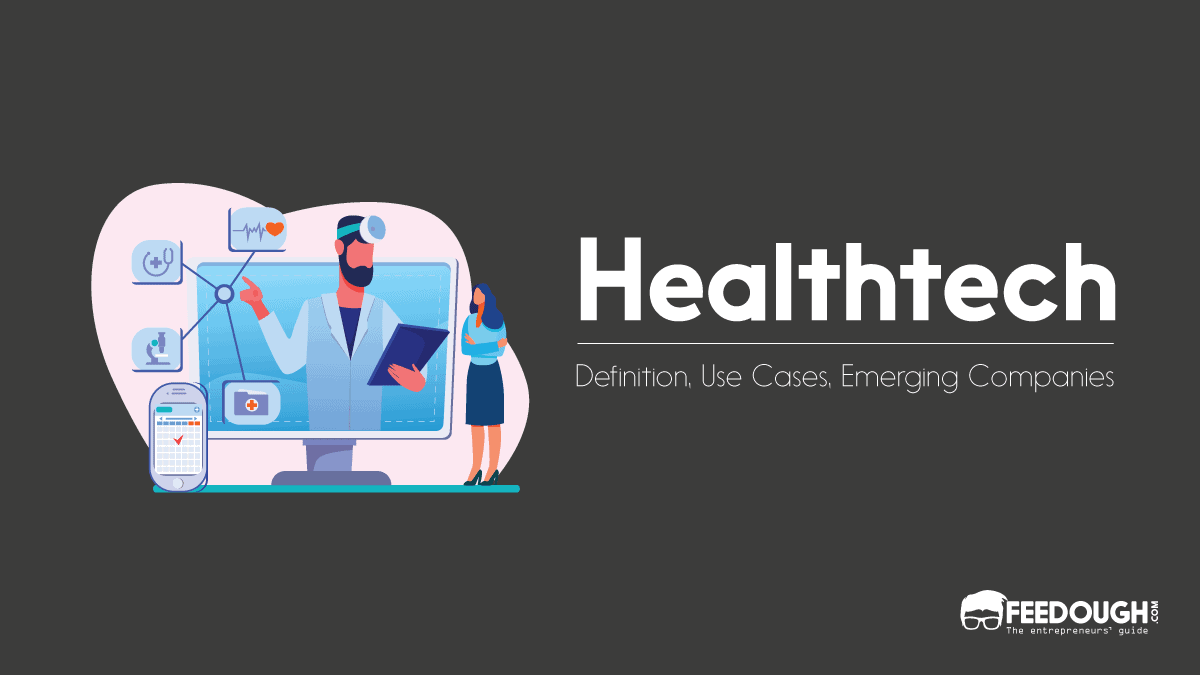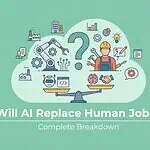Healthcare is undeniably one of the most crucial aspects of our lives, as it directly impacts our well-being and the quality of life of individuals. Many health problems have been on the rise in recent years, including the majority of chronic diseases like diabetes and an ageing population.
Especially after the COVID-19 pandemic, the importance of healthcare and the need to make healthcare more accessible, affordable, and efficient was observed. Currently, the health industry faces several obstacles like rising costs, access to proper care, workforce shortage, etc., and that’s where health tech comes into play.
Health tech companies and startups have risen to provide better alternatives to traditional healthcare services. These companies aim to improve patient outcomes, increase access to healthcare services, and reduce costs using ever-evolving technology.
Let’s dive into what exactly healthtech is and how it’s changing the face of the healthcare industry.
What Is Healthtech?
Healthtech is short for healthcare technology or health information technology. It refers to using technology like software, analytics, artificial intelligence, etc., to improve the overall efficiency of healthcare services.
The main aim is to incorporate technology into our healthcare systems to benefit the people. This includes- data collection/analysis, treatment decisions and plans, diagnostics, useful insights about diseases and their medicines, and much more.
Healthtech is being adopted worldwide to provide quality healthcare services to all. Healthtech companies aim to improve people’s health by providing easily accessible healthcare services such as online doctor visits and health checkups, technology to keep track of eating & sleeping habits, devices to set reminders for health checkups and medicines, surgery robots, insurance costs, and diet plans, etc.
The growth of healthtech has opened up doors for many innovations that aim to tackle long-standing healthcare issues. From AI-powered medical diagnosis tools to remote patient monitoring systems, health tech solutions are helping drive positive change across the entire healthcare industry.
Healthcare Challenges
With healthcare costs consuming nearly 17.4% of GDP, families struggling to pay medical bills, and a global shortfall of 6.4 million nurses, the strain on healthcare systems is constantly rising. Here are some major challenges being faced by the healthcare industry:
Rising Healthcare Prices
Healthcare costs have been increasing much faster than overall inflation, making quality care difficult to afford for many individuals. What’s behind these rising prices? Factors like high-priced drugs and medical devices, more chronic illnesses, an ageing population, and administrative inefficiencies.
In the US, the average cost of a hospital stay is projected to be $11,700, and the annual cost of health insurance for a family plan is projected to reach $24,282.
Access to Healthcare
Too many people, usually in rural/low-income areas, lack access to good health services due to provider shortages, high costs, transportation issues, and insurance gaps. According to the US Census Bureau’s Current Population Survey (CPS), the rate of uninsured people in the United States will be 9.2% in 2023. The majority of uninsured people are in rural sectors, about 10.8%.
Cybersecurity Issues
As medical records contain highly sensitive personal information, the healthcare sector is often a main target for cybercriminals. There are many rising concerns about data protection and privacy of patients as well as the staff.
In 2023, there was an estimated 94% increase in ransomware attacks in the healthcare sector compared to 2020. The ransom payment is higher than any other industry, with an average of $847,129 per attack.
Poor Quality of Medical Services
Most of the good healthcare services are expensive, and the relatively affordable ones are very complex and disorganized. Doctors, nurses, and hospitals often do not work together or share information well. They also may not have enough data about patients. This causes big problems with giving patients good care. Many patients get bad treatment by accident or have bad health outcomes that could have been prevented.
Healthcare Disparities
Significant disparities in healthcare access and outcomes exist between different groups of people. These are the unfair differences in the quality, access, affordability, and general care experience that certain disadvantaged groups face compared to the overall population.
Workforce Shortages
Many countries face an inadequate number of healthcare professionals and caretakers. Due to the shortage of staff, providing quality care and treatment to the patients becomes extremely difficult.
A global study conducted by The Lancet Commission on Global Health Workforce for Health and Sustainable Development estimates a shortfall of 18 million healthcare workers by 2030, including 9.7 million nurses and 6.7 million doctors. The WHO projects that there will be a global shortage of 12.9 million nurses by 2030, with the most acute shortage in Africa.
Lack of Patient Engagement
A lot of times, patients don’t play an active role in managing their own health. They leave most of the major healthcare decisions up to their doctors without knowing their situation very well. This can lead to worsening their health, which is why educating and engaging the patient in their health checkup is very important.
Mental Health Support
Mental health issues like depression or anxiety are often misunderstood and highly stigmatized in society. This makes it tough for many people to get the treatment they need and consult a professional.
Drug Discovery
Drug discovery is a long and expensive process, and finding new treatments for rare diseases is difficult. It can take several years to find cures and vaccines with just manpower.
Personalized Medicines
Personalized medicine aims to tailor medical care to each patient’s unique biology and lifestyle. For example, two people may have diabetes but need different diet or medication routines. However, not everyone has access to personalized diets and medicines, and it is difficult to provide personalised medicines to each and every patient manually.
Regulatory Challenges
The healthcare system has many rules and regulations to ensure patient safety. However, this also limits the use of newer technologies like health apps and virtual reality therapy.
Treating Chronic Illnesses
As rates of chronic conditions like heart disease, cancer, and diabetes continue to increase, so does the strain on healthcare systems and the costs of their treatment.
Healthtech Use Cases
Here are use cases and examples of health technology being used in the healthcare sector to tackle the challenges mentioned above:
Making Quality Healthcare More Affordable
As prices for medical services, prescription drugs, devices, and insurance premiums climb faster than peoples’ incomes grow, healthcare has become too expensive for many people. Health technologies like video doctor appointments, health monitoring wearables, and AI treatment plans aim to improve results at lower costs. Examples include
- Patients can access healthcare services for serious conditions without paying for travel.
- Daily blood sugar readings from a smartwatch can prevent diabetes from worsening early to prevent hospitalizations (and paying the crazy expensive hospital bills).
- AI-optimized medications tailored to a patient’s genetics and biology could better treat their illness.
Expanding Access to Healthcare
Whether due to staff shortages, hospital closures, insufficient public transit, or coverage gaps, quality care remains out of reach for too many – especially in lower-income, minority, and rural communities. Innovations like telehealth, mHealth apps, AI diagnostics, and blockchain-secured records help fill many access gaps. For instance:
- Nurse practitioner-supported video visits bring basic care to remote regions without specialists.
- Symptom checker apps help users determine if care is needed.
- AI imaging algorithms spot abnormalities human doctors miss to improve diagnostic accuracy.
- Digital records give patients ownership to share across any provider.
Improving the Quality of Medical Services
Today’s complex healthcare system often lacks coordination. Important patient information falls through the cracks. This leads to mistakes, poor outcomes, and sometimes patient deaths that could have been prevented. Advanced health technologies help fix these problems by:
- Electronic Health Records (EHRs) let all of a patient’s doctors access their full medical history in one place over time. This complete view helps them give better care.
- Health Information Exchanges (HIEs) allow patient data to be securely shared between different healthcare providers like hospitals and labs. This keeps everyone on the same page.
- Clinical Decision Support Systems give real-time treatment suggestions to doctors at the point of care based on the latest medical research. This promotes safer, more effective care.
- AI tools can go through patient data to spot opportunities for improving quality across the healthcare system as a whole.
Internet of Things Technology to Improve Healthcare
IoT healthcare solutions, smart devices, and sensors can transform healthcare in important ways such as:
- Providing better patient outcomes by effortlessly gathering health data from patients between visits. Problems can be caught early before they worsen, and patients can get more personalized care.
- Saving time and money with automatic location updates of equipment. When hospital equipment automatically updates locations in real-time, less time is wasted manually tracking it down. Staff can focus on patients instead.
- Collecting patient information securely. IoT health devices use the latest encryption and cybersecurity measures to keep personal data safe.
- Doctors can tailor concrete treatment plans based on the aggregated information from implantables, wearables, and more in integrated dashboards based on each individual’s unique health profile.
Improving Access to Mental Health Care
Mental health conditions are often stigmatized, and care is difficult to access. Healthtech can expand access to supportive mental health services by:
- Offering virtual reality therapy where patients simulate challenging situations to practice coping tactics from anywhere.
- Having AI chatbots available 24/7 to provide personalized counselling, check in on moods, and refer patients to human specialists.
- Enabling anonymous video sessions with licensed therapists for people hesitant about in-person visits.
Improving Healthcare Cybersecurity
As mentioned above, medical records contain very private personal information. Unfortunately, this makes healthcare a big target for hackers. Some ways in which health technology boosts security:
- Encrypting data to protect it wherever stored.
- Requiring multiple proofs of identities to access records.
- Training healthcare teams to recognize and stop cyber threats.
Getting Patients More Involved in Their Own Care
Health tech allows patients to be more involved in their own healthcare and take more control by:
- Letting patients see their test results, treatment plans, and other medical information online. This way, they better understand what’s happening with their body.
- Creating websites and phone apps tailored to each person’s health needs. For example, an app that sets reminders to take medications, tracks diet, and provides feedback to form good habits.
- Making health fun and rewarding through games and prizes. For instance, an app that gives you points or some reward for completing weekly exercise goals. This motivates people to prioritize their health.
Reducing Unequal Access to Healthcare
Quality, affordability, and health outcomes differ greatly between groups based on race, income, age, etc. Health tech could help close these gaps through:
- Video visits give rural and low-income areas better access.
- Apps/websites designed for different languages and cultures.
- AI checks for any bias in health algorithms.
Alleviating Provider Shortages
With not enough doctors and nurses available for rising demand, health tech could maximize the expertise of the current workforce by:
- Providing AI helpers automating routine documentation/referral tasks.
- Virtual reality training tools to educate more providers.
- Easy data sharing for better collaboration between providers.
Speeding Up New Drug Development
Developing new medicines tends to be very slow and costly, especially for rare diseases. Healthtech could help by:
- AI models screening chemical compounds to uncover promising new drugs.
- Computer simulations predict how drugs will interact in human bodies.
- VR tests modelling drug impacts in virtual patients.
Heavily regulated systems help ensure patient safety but can limit the adoption of new technology. Health tech developers can progress innovations by:
- Proving safety and benefits of new tools to policymakers.
- Partnering with healthcare groups to balance interests.
- AI streamlines lengthy review processes to move faster.
Healthtech Startups and Companies
Many companies are using advanced technology to make healthcare access cheaper, easier, and overall better for all. The latest data shows that the top 100 healthtech companies are worth over $4 trillion. This shows how big and growing the health tech industry is. These top companies and startups are making new technologies that are changing how healthcare works and helping patients get better.
Listed below are some of these emerging health tech startups and leading companies in the healthcare industry:
DignifiHealth
Location: West Virginia, USA
Founded: 2020

DignifiHealth is a startup based in the US that makes software to help manage patients with long-term health conditions. Their software provides all the important information to doctors during appointments. This helps give each patient the best care for them at the lowest cost. It identifies what care each patient needs and when they need it. This allows quality care that saves money.
IntelliProve
Location: Ghent, Belgium
Founded: 2020

IntelliProve is a Belgian-based health tech startup. They made an AI health checker that works by analyzing your face using a smartphone camera. Their software looks at small changes in skin color, expressions, and other visual signs.
The algorithm also checks for areas with good blood flow to take remote biopsies. It can measure important health signs from a distance while gathering health data simply using a phone camera instead of in-person tests.
Iodine Software
Location: Texas
Founded: 2010

Iodine Software makes products that use AI to improve healthcare. One of their product- Interact, helps doctors and medical coders quickly find answers to questions about patient records. Another product uses machine learning to read clinical data and spot trends.
Their goal is to help healthcare teams work faster and make better decisions for patient care. Overall, Iodine Software aims to make healthcare more efficient and get better results for patients by using the latest technology.
Yalantis
Location: Poland
Founded: 2008

Yalantis has established itself as an innovative leader in healthcare software development over the past 15 years. The company is focused on building top-quality custom solutions for healthcare industry clients while upholding robust integrity standards.
Yalantis aims to help healthcare organizations, from hospitals to telemedicine startups, effectively adopt new technologies. This allows their clients to improve healthcare delivery, unlock operational efficiencies, and drive better health outcomes.
Arcadia
Location: Boston, MA
Founded: 2002

Arcadia has developed a healthcare analytics platform that transforms data into practical insights that improve patient care. The company’s goal is to help healthcare organizations and customers use data analytics to better protect, extend, and save lives.
The company cares deeply about making a difference and recognizes that healthcare is critical and personal. Arcadia aims to have real human impact by providing healthcare players the actionable intelligence to deliver quality, customized care to patients.
Sophia Genetics
Location: Switzerland
Founded: 2011

Sophia Genetics is a healthtech company specializing in genomic and radiomic data analytics to support medical research and precision medicine. Its name “SOPHiA” stands for Scale, Organize, PHenotype, Interpret, and Analyze, reflecting the company’s core capabilities.
The company has developed an advanced analytics platform that mines complex molecular and medical imaging data to extract actionable insights. Several hospitals, labs, and pharmaceutical companies use Sophia Genetics’ SaaS platform to inform their work across rare diseases, hereditary cancer, and other specialty areas.
Future of Healthtech
The healthtech industry is in for tremendous growth and innovation that can transform healthcare delivery. Numerous emerging technologies have exciting potential to improve patient outcomes and experiences. As healthtech continues advancing, the future of healthcare looks incredibly promising.
In the coming future, AI tools will enable earlier and more accurate diagnoses and personalized treatment plans. Virtual reality (VR) and augmented reality (AR) will enhance surgical training through realistic simulations. Surgeons can also use AR for real-time guidance during procedures. VR/AR will be able to provide immersive pain management solutions.
Wearables and implantable devices will allow continuous monitoring of vital signs, activity, sleep, and internal conditions like blood pressure. This can help detect health issues early.
Other advances like gene editing, 3D printing of customized implants/prosthetics, telehealth, and remote monitoring will make healthcare more personalized, preventive, and accessible.
In summary, emerging health technologies are expected to revolutionize healthcare delivery, leading to better outcomes, lower costs, and increased access.
A startup consultant, digital marketer, traveller, and philomath. Aashish has worked with over 20 startups and successfully helped them ideate, raise money, and succeed. When not working, he can be found hiking, camping, and stargazing.









